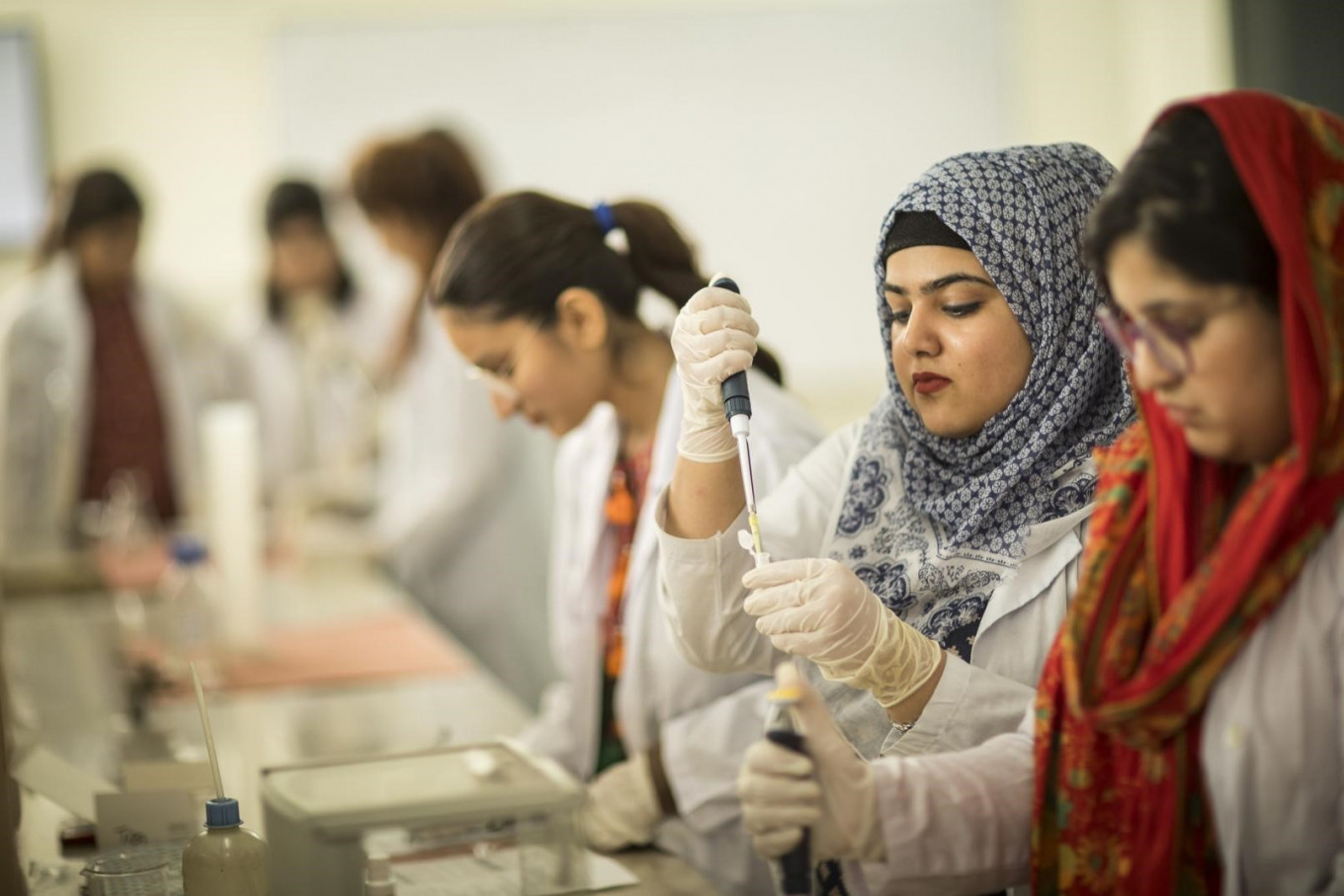Popular Reads
Top Results
Can't find what you're looking for?
View all search resultsPopular Reads
Top Results
Can't find what you're looking for?
View all search resultsBritish Council scholarships support more women to study STEM subjects in Asia
The British Council has doubled the number of scholarships in its Global Women in STEM program, supporting women to pursue their studies in science, technology, engineering or math at a UK university.
Change text size
Gift Premium Articles
to Anyone
T
he British Council has doubled the number of scholarships in its Global Women in STEM program, supporting women to pursue their studies in science, technology, engineering or math at a UK university. Awardees will gain academic support in tuition fees, stipends, travel costs, visas, health coverage fees, and even support for mothers and other awardees with dependents.
There are now 29 scholarships available for women from Cambodia, Indonesia, Laos, Malaysia, Myanmar, the Philippines, Thailand and Vietnam. Female scientists from these eight countries can now apply for the leading courses at UK universities, including Brunel University, Teesside University, Liverpool John Moores University, Edinburgh Napier University, University of Glasgow and the University of York.
All the scholarships will cover the funding for over 21 Master’s degrees and eight PhDs or fellowships. For 2022, a special Foreign Commonwealth Development Office ASEAN dialogue Master’s cohorts will provide funding specifically for six scholars from Myanmar, Laos and Cambodia.
Last year, 15 scholars from Indonesia, Malaysia, Thailand and Vietnam started their Master's degrees in STEM at their chosen UK universities as part of the first Scholarships for Women in STEM cohort.
“While progress is being made, girls and women continue to be underrepresented in science, technology, engineering and mathematics. These scholarships will help boost the numbers of female STEM candidates from Indonesia and will build on the already strong academic collaboration between the UK and Indonesia,” said Hugh Moffatt, director of the British Council, Indonesia.
Data from the UN Scientific Education and Cultural Organization (UNESCO) reveals that women make up fewer than 30 percent of researchers worldwide and only 30 percent of female students pursue STEM subjects in higher education. Globally, the number of women enrolling in STEM-related subjects is also low in information and communications technology (3 percent), natural science, mathematics and statistics (5 percent), and engineering, manufacturing and construction (8 percent).
Providing equal opportunity to women who wish to pursue a career in STEM helps narrow the gender pay gap, as a typical STEM worker earns two-thirds higher income than non-STEM workers. It also contributes to Sustainable Development Goal 5: achieving gender equality and empowering all women and girls.
“To meet the challenges of the 21st century, we need more women and girls studying and working in STEM fields. But often, social and economic opportunities limit women from advancing their professional ambitions,” added Moffatt.
“The UK has a world-renowned higher education sector that is truly international. These scholarships will enable talented women to take up a life-changing opportunity to develop their careers in their chosen STEM fields, and then harness the experience to make a greater impact for good when they return home,” Moffatt concluded.
You can visit https://bit.ly/IDWomenInSTEM for more information on the Women in STEM scholarships










